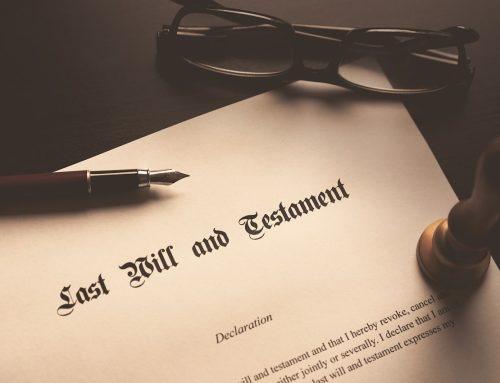Powers Of Attorney – A General Overview
Powers Of Attorney – A General Overview

Understanding The Importance Of Power Of Attorney
You head home from work one evening and notice a lump on your back while showering. After consulting with a doctor, you discover that a small cyst has formed on your back. Though this discovery does not threaten your immediate health, it will require a surgical procedure to be resolved. What do you do if your surgery becomes complicated? Who will act on your behalf in the event of an emergency?
Invoking the power of attorney in a situation similar to the one above would prove beneficial. The power of attorney is a legal document that allows a representative or agent to act on one’s behalf. An agent can be an individual or an organization, such as a family member, friend, or a retained attorney.
This type of document varies in specificity in that it can give an agent short or long-term authority to act on one’s behalf. A person may want to grant power of attorney to an agent in instances such as surgery, short-term care, long-term illness or any other situation where a person may need assistance in carrying out personal duties. An agent who has been granted power of attorney is able to make financial or healthcare decisions on behalf of the grantor. These decisions may include performing transactions, filing taxes, managing businesses or properties, and even determining the type of care that a grantor receives.
Different Types Of Power Of Attorney & Their Uses
There are several types or attributes of powers of attorney, namely limited, general, durable and springing*.
- A limited power of attorney grants an agent the ability to perform only specific, limited tasks and usually has a set duration of time.
- A general power of attorney allows an agent to carry out most of the responsibilities the grantor holds and is empowered the moment the grantor signs the document. If a grantor becomes incapacitated, the agent does not have the right to act on the behalf of the grantor unless the powers are also durable. Oddly enough, although the document is termed “general,” all powers must be specifically listed in order to be granted as “general.”
- A durable power of attorney gives an agent the right to act on the behalf of a grantor during incapacitation of the grantor. It endures one’s incapacity, whereas the default power of attorney is non-durable (meaning that the powers are live/granted upon document signing but the powers are actually lost the moment the grantor loses capacity). This type of power of attorney holds much more legal significance since it could effectively give an agent the ability to act on behalf of the grantor for the remainder of the grantor’s life.
- A springing power of attorney only activates upon a listed event (but not before such an event) – most often the incapacitation of a person. Thus, a grantor of a springing power of attorney will hold sole discretion over their decisions until a debilitating event occurs that springs the powers into effect.
- As of October 1, 2011, a springing power of attorney is no longer valid in the State of Florida unless such a document was signed prior to this date.
Each of the aforementioned types of powers of attorney may serve a useful purpose depending on a situation at hand and some may be combined. It is always recommended to discuss the implications of granting these powers with an attorney as they can clarify the legal significance and practical use of these documents. In any case, documents granting the power of attorney should specifically outline the activities and length of time in which an agent is allowed to perform the power of attorney.
It is in one’s best interest to appoint an agent power of attorney with advanced planning since one must have legal mental capacity to grant another person the power of attorney. Failure to have these documents done well in advance of needing them could result in a costly, stressful and time consuming guardianship in court to assign the very same rights that could have been spelled out on paper in the power of attorney.
This article is written by Florida attorneys and only considers Florida law in place at the time of publication. This article should not be relied upon as a substitute for legal advice and one should always consult with an attorney in their state before making any legal decisions.
At The Estate Plan, we take pride in serving our clients with compassion, competence and creativity. After all, we’re all unique. It takes a special comfort and confidence to trust someone to handle protecting one’s family and possessions. We appreciate being that person for so many families. If you are interested in coming in for a consultation, do not hesitate to contact us at (305) 677-8489.
Have questions about how to get started on your estate plan or estate needs?
Have questions about how to get started
on your estate plan or estate needs?
Contact the experienced estate planning professionals at The Estate Plan
by calling us at (305) 677-8489.
Contact the experienced estate planning professionals at The Estate Plan by calling us at
(305) 677-8489.

















